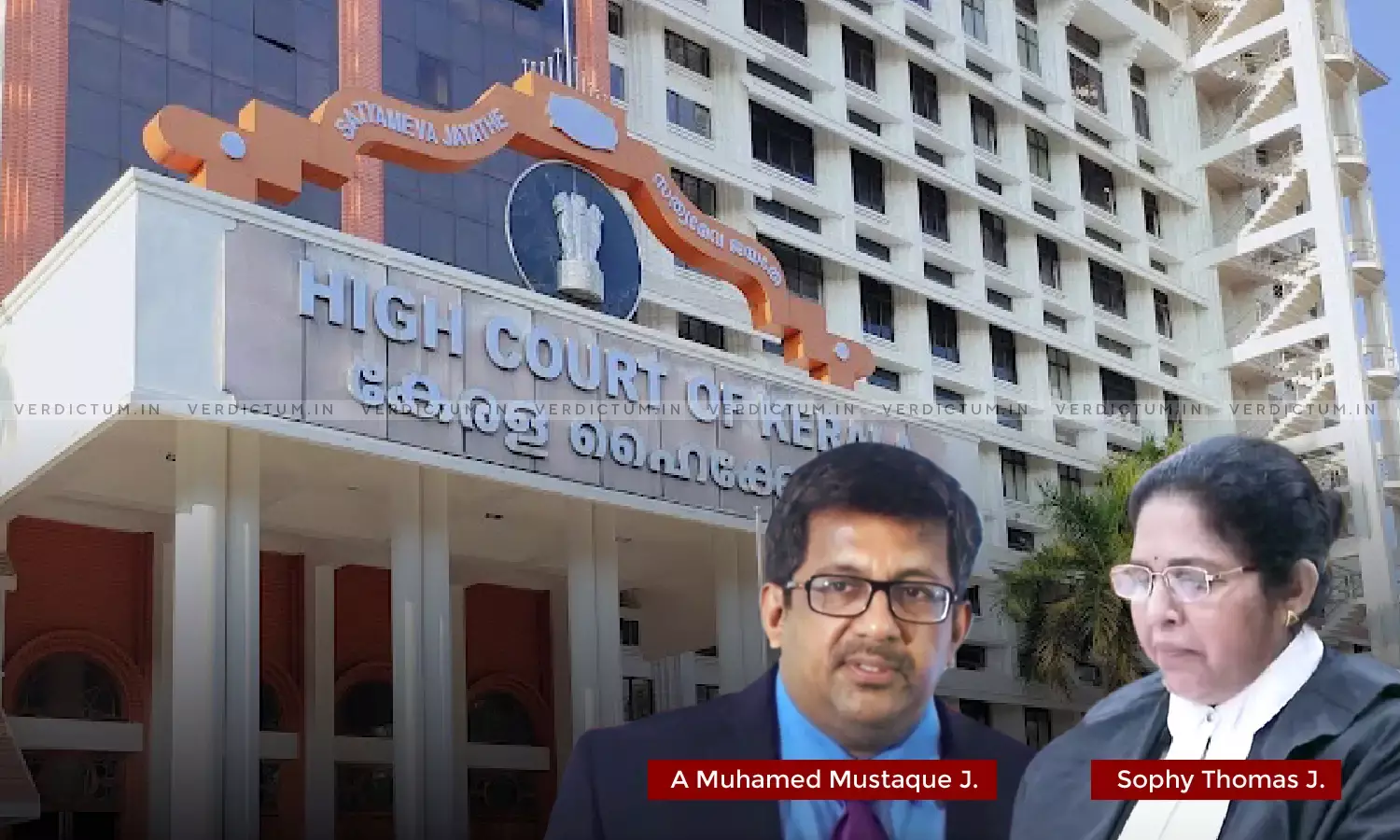Live-In-Relationships On Rise, Consumer Culture Of 'Use And Throw' Influencing Matrimonial Relationships: Kerala HC

The Kerala High Court has observed that matrimonial relationships are being influenced by the consumer culture of 'use and throw' and live-in relationships are on the rise in the state. The Court has also noted that the younger generation considers marriage an evil that could be avoided to enjoy free life.
"Now-a-days, the younger generation think that marriage is an evil that could be avoided to enjoy free life without any liabilities or obligations. They would expand the word 'WIFE' as 'Worry Invited For Ever' substituting the old concept of 'Wise Investment For Ever'. The consumer culture of 'use and throw' seems to have influenced our matrimonial relationships also. Live-in-relationships are on the rise, just to say good-bye when they fell apart.", the Bench of Justice A. Muhamed Mustaque and Justice Sophy Thomas observed.
The Bench also expressed concern over how desperate divorcees affect the society.
"Kerala, known as God's own Country, was once famous for its well knit family bondage. But the present trend it seems to break the nuptial tie on flimsy or selfish reasons, or for extra-marital relationships, even unmindful of their children. The wails and screams coming out of disturbed and destroyed families are liable to shake the conscience of the society as a whole. When warring couples, deserted children and desperate divorcees occupy the majority of our population, no doubt it will adversely affect the tranquility of our social life, and our society will have a stunted growth.", the Court held.
The Bench was dealing with a matrimonial dispute wherein the husband sought dissolution of his marriage with his wife, on the ground of matrimonial cruelties.
Both appellant-husband and respondent-wife were employed in Saudi Arabia and three girl children were born in their lawful wedlock. Admittedly, they were leading a very cordial and smooth marital relationship till 2018.
The husband alleged that his wife developed some behavioural abnormalities, and often picked quarrels with him for no reason. The case of the appellant was that his wife picked quarrels with him alleging illicit relationship with other ladies. According to him, their marital relationship was irretrievably broken and so he wanted a decree of divorce.
The respondent-wife vehemently opposed his petition. According to her, the appellant was concocting reasons to keep himself away from his wife and children and that she was never cruel to the husband and she never assaulted or threatened him.
The Family Court found that the appellant failed to prove the allegations of cruelty so as to dissolve their marriage, and hence his plea was dismissed.
Feeling aggrieved, the appellant-husband approached High Court.
Advocate Mathew Kuriakose appeared for the appellant-husband and Advocate B.J John Prakash appeared for respondent-wife.
The Court observed that the mother and close-relatives of the appellant had deposed that in the year 2017, the appellant developed some illicit intimacy with a lady and thereafter, he wanted to avoid his wife, children and even his own mother.
The Court further noted that "The case of the appellant that while their marital relationship was going very smoothly, the respondent developed some behaviuoral abnormalities assumes significance here. Without any solid reason, there was no chance for any such behavioural changes from the part of a wife, unless there were some physical, mental or psychological issues."
"When the wife had reasonable grounds to suspect the chastity or fidelity of her husband, and if she questions him, or expresses her deep pain and sorrow before him, it cannot be termed as a behavioural abnormality, as it is the natural human conduct of a normal wife.", the Court added further.
The Court on perusing the facts and circumstances noted that the appellant developed some illicit intimacy with another lady and he wanted to avoid his wife and children from his life, so as to live with that lady and that the testimony of his own mother and relatives speak against him.
The Court held that it cannot aid an erring person to legalise his illegal activities. "Courts cannot come to the aid of an erring person to legalise his activities, which are per se illegal", the Court observed.
"If the husband having unholy alliance with another woman wants to avoid his lawfully wedded wife and his three little children, he cannot seek the assistance of a court of law to get his present relationship legalised by dissolving his lawful marriage, without any valid reasons for the same.", the Court expressed.
The Court pointed emphasised that mere quarrels, ordinary wear and tear of matrimonial relationships or casual outburst of some emotional feelings cannot be treated as cruelties warranting a divorce.
"Since, no act of cruelties, able to cause a reasonable apprehension in the mind of the appellant that it would be harmful or injurious for him to live with the respondent was proved by the appellant, he is not entitled to get a decree of divorce on the ground of matrimonial cruelties.", the Court held.
"If the appellant is ready to come back to his wife and children, they are ready to accept him, and there is nothing to show that the chances of an amicable reunion is foreclosed forever.", the Court concluded.
Cause Title- Libin Varghese v. Rajani Anna Mathew
Click here to read/download the Judgment

